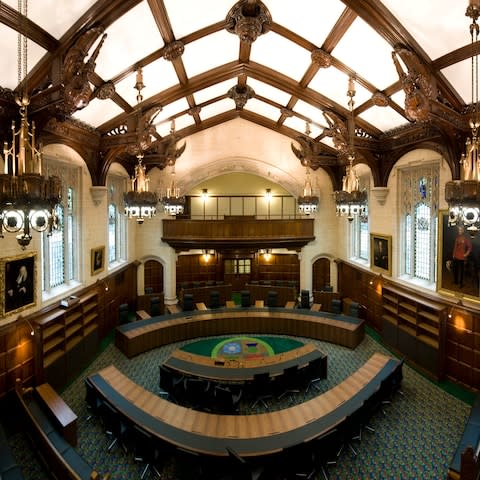Baroness Hale 'hoping for three women' to join Supreme Court bench
Baroness Hale of Richmond, the first female head of the Supreme Court, has suggested she would like three women to replace the senior judges whose jobs are now being advertised by the UK’s highest court.
The court has begun a recruitment process which she hopes will provide a significant boost to the diversity on bench. Currently, only two of the 12 senior justices are women.
Lady Hale, 72, who was sworn in as president of the court in October, has made it clear that she hopes to use her position to inspire other women and show that they can reach the pinnacle of any profession.
She welcomed the fact that Lady Justice Black joined her as the second female justice and made it plain that they hope to further improve the gender balance.
In a recent question and answer session, she said: “I certainly can’t promise anything, we have three vacancies, it would be great if one could be filled with a woman, or even two or three.”
Lord Mance, the deputy president of the court, will retire in June 2018 and two other vacancies will be created by the retirements of Lord Hughes and Lord Sumption next year.

If one of the serving justices is appointed deputy president, a third new justice will be recommended from this round of applications. The current salary for a supreme court justice exceeds £225,000 a year.
The court has said it is looking for candidates with a “deep level of legal knowledge and understanding” as well as a “high intellectual capacity” and an understanding of the “communities which the law is there to serve”.
It added: “Applications are sought from the widest range of candidates eligible to apply and particularly those who will increase the diversity of the court.”
Applicants are required to have held “high judicial office” for at least two years or to have been a practising solicitor or barrister for at least 15 years.
Lady Hale, who has also made it clear she does not advocate positive discrimination, said in a recent interview: “I believe women's experience of the world is as important in the framing of the law's answers to difficult problems as men's. I also believe many men are feminists, just as some women are not."

 Yahoo News
Yahoo News 